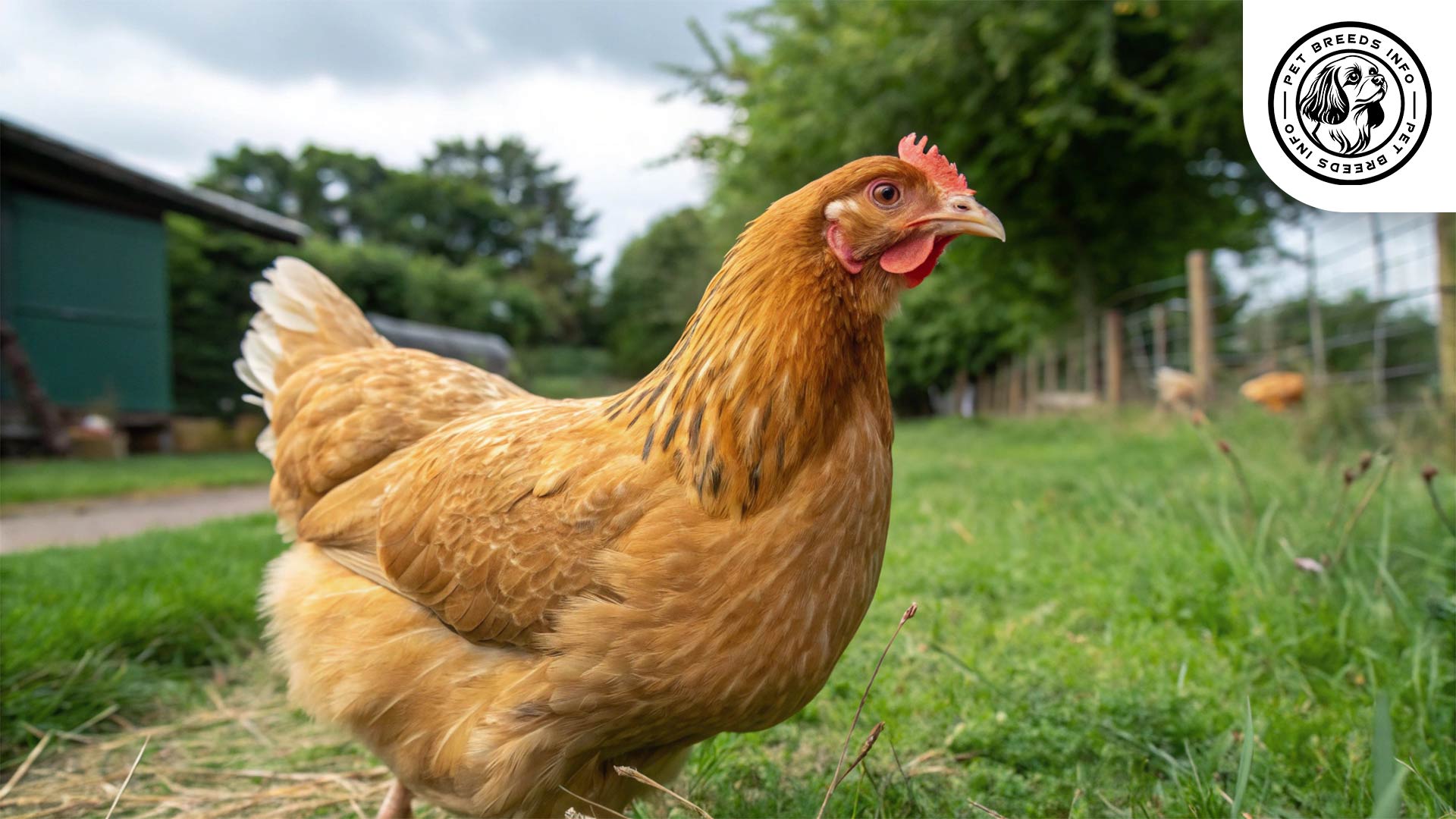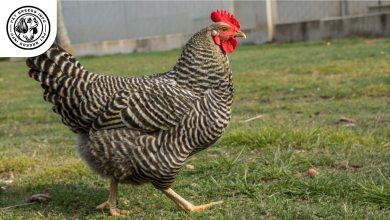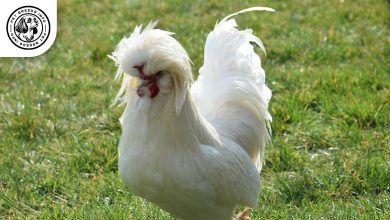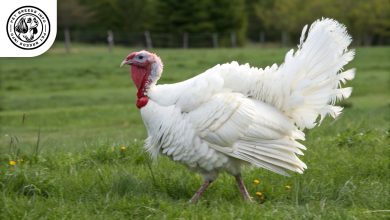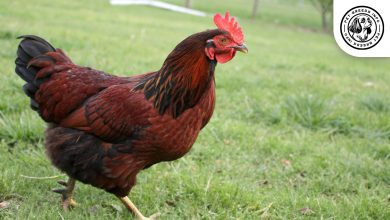Lincolnshire Buff Chicken Breed: Personality, Lifespan & Care
General Introduction of the Breed
The Lincolnshire Buff Chicken is a rare and heritage poultry breed originating from Lincolnshire, England. It was developed in the 19th century as a dual-purpose bird, valued for both meat and egg production. This breed experienced a decline after the rise of commercial hybrid breeds but has recently gained interest from poultry enthusiasts looking to preserve heritage breeds.
Table of Contents
| Common Name | Lincolnshire Buff Chicken |
| Scientific Name | Gallus gallus domesticus |
| Origin | Lincolnshire, England |
| Size | Medium to large – Males: ~10 lbs (4.5 kg), Females: ~8 lbs (3.6 kg) |
| Lifespan | 6–8 years |
| Colors | Buff (warm golden plumage) |
| Talking Ability | None – communicates with clucks and chirps |
| Noise Level | Moderate – calm vocalizations |
| Social Behavior | Friendly, docile, good with children and other chickens |
Physical Characteristics
The Lincolnshire Buff Chicken is a medium to large-sized breed. Males typically weigh around 4.5 kg (10 lbs), while females weigh approximately 3.6 kg (8 lbs). It has a soft, buff-colored plumage, which gives it a warm golden appearance.
Its eyes are usually orange or reddish in color. The comb is single, medium-sized, and bright red in hue. It has small, round wattles and smooth earlobes, both of which are also red. Its legs are sturdy and clean, usually of a white or pale pink shade. This breed is well-proportioned with a broad body and full breast.
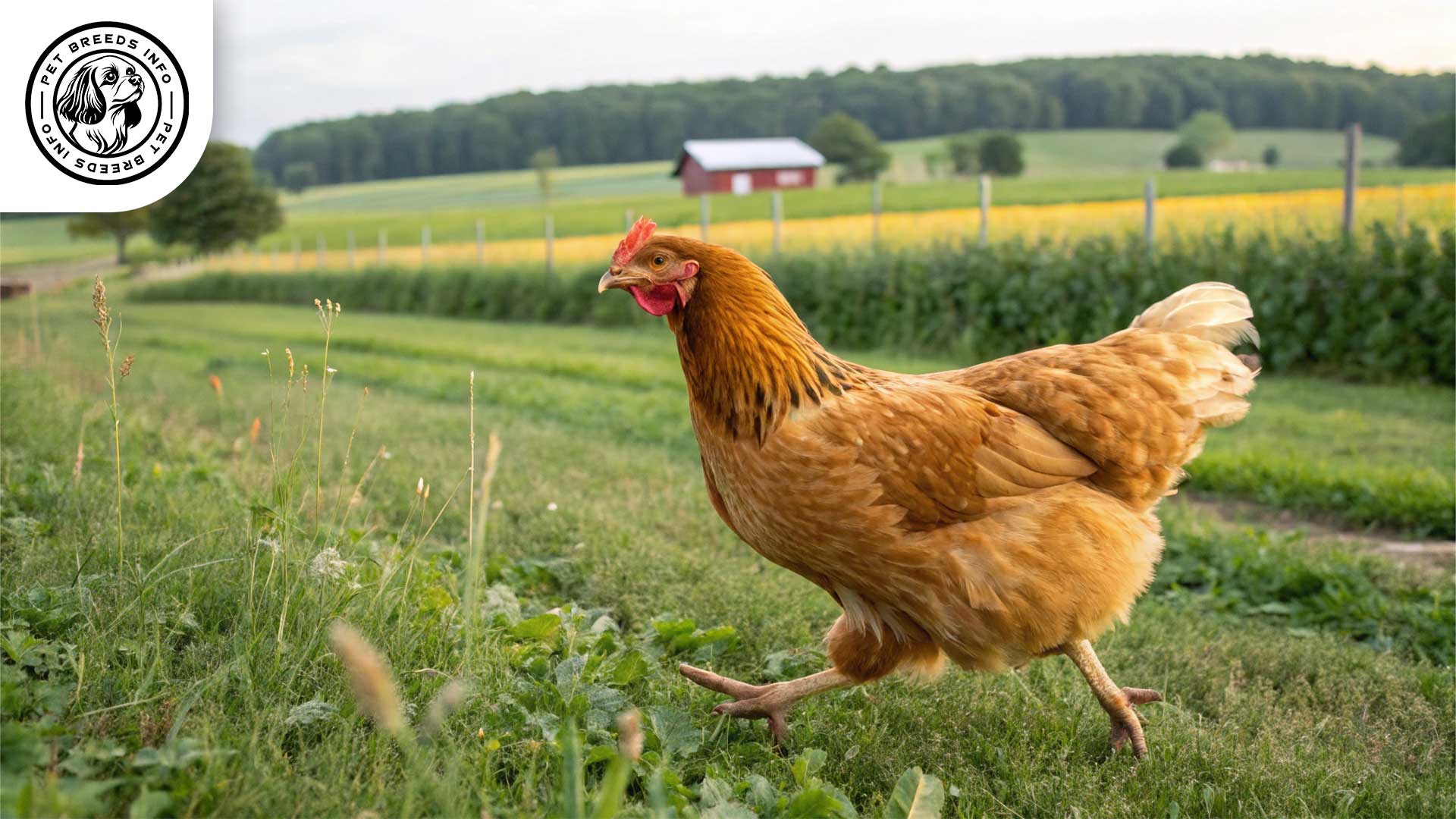
Personality and Temperament
The Lincolnshire Buff Chicken is known to be calm, friendly, and easy to handle. It is an intelligent breed that quickly learns its surroundings and routine. Its moderate energy levels make it an excellent choice for backyard chicken keepers.
This breed is social and enjoys human interaction. It gets along well with other chickens and is not prone to aggressive behavior. Additionally, it is well-suited for families with children, as it tends to be docile and gentle. Due to its adaptability, it thrives in different environments and remains resilient under changing conditions.
Care and Maintenance Requirements
Lincolnshire Buff Chickens require moderate exercise and benefit from having space to forage. They adapt well to both free-range and enclosed environments, though they thrive best when allowed to roam in a spacious, secure area.
Grooming requirements are minimal. Regular dust baths help keep their feathers clean and free of parasites. Occasional checking of their nails, beaks, and feet ensures good overall health. Their combs and wattles should be monitored for frostbite during winter months.
Regarding climate sensitivity, this breed is fairly hardy in both cold and warm climates. However, providing adequate shelter from extreme weather is essential.
Diet and Nutrition
The Lincolnshire Buff Chicken thrives on a diet of high-quality poultry feed, supplemented with grains, seeds, and kitchen scraps. A balanced diet should include proteins, calcium, and vitamins to ensure egg production remains optimal.
Read More: Pied Cockatiel Bird
Foods such as avocados, chocolate, raw beans, and salty leftovers should be avoided, as they are toxic to chickens. Fresh water should always be available, and calcium supplements like crushed oyster shells can help strengthen eggshells.
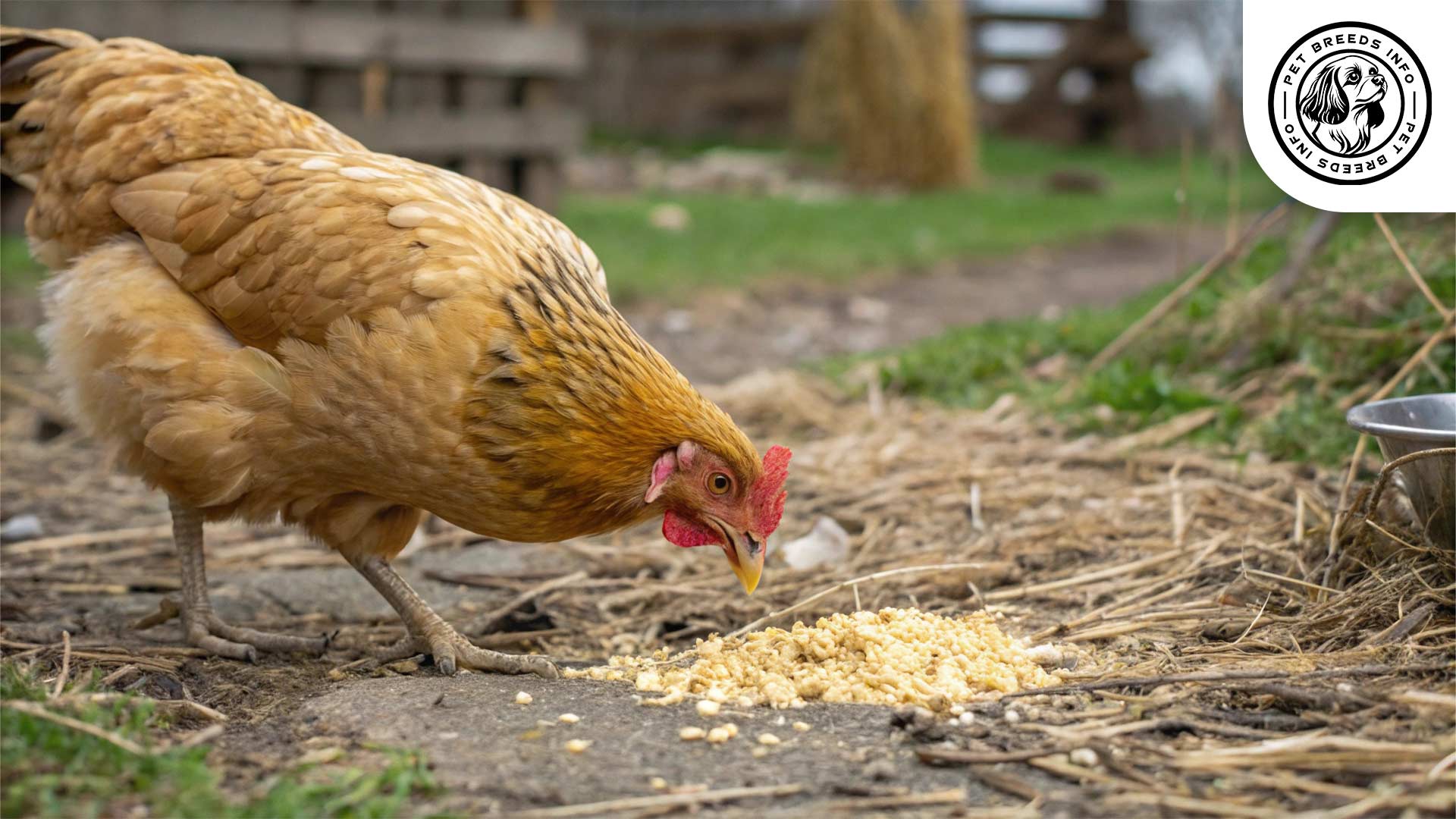
Health and Common Medical Issues
Lincolnshire Buff Chickens are generally healthy but, like all poultry, are susceptible to common chicken ailments such as mites, lice, respiratory infections, and bumblefoot. Regular health checks and a clean living environment can help prevent these issues.
The average lifespan of a Lincolnshire Buff Chicken is between 6 to 8 years, though some birds may live longer with proper care.
Routine vaccinations and deworming, as well as biosecurity measures, can help prevent common poultry diseases such as Marek’s disease and Newcastle disease.
Training and Behavior Management
Training Lincolnshire Buff Chickens is relatively easy, as they quickly adjust to schedules, routines, and food sources. They can be trained to return to their coop at night with consistent feeding habits.
Read More: Chantecler Chicken
Early handling and socialization help in making these birds more docile and cooperative. They respond well to positive reinforcement and gentle interaction.
Interaction with Other Animals and Humans
These chickens are friendly toward humans and often develop a bond with their caretakers. They are also known to coexist well with other chicken breeds and farm animals.
Since they are non-aggressive, they are suitable for families with children. However, care should be taken when introducing them to larger animals that may perceive them as prey.

Price and Availability
The Lincolnshire Buff Chicken is still considered rare, and acquiring one may require reaching out to specialized breeders or conservation programs. The price for a chick can range between $10 to $20, while adult birds may cost upwards of $40.
Buying from reputable breeders ensures that you receive a healthy, genetically sound bird. It is also advisable to check with poultry clubs or heritage breed organizations for recommendations.
Conclusion and Final Thoughts
The Lincolnshire Buff Chicken is an excellent choice for poultry enthusiasts looking for a rare yet hardy breed. Its friendly temperament, good egg-laying capacity, and ease of care make it a great addition to backyard flocks.
This breed is ideal for families, small farmers, and conservation-minded individuals. Before acquiring one, ensure you have adequate space, secure housing, and time to care for these birds properly.
Read More: Gloster Canary
With the right environment and care, the Lincolnshire Buff Chicken is a rewarding breed that provides both companionship and productivity.
FAQ
What is the Lincolnshire Buff Chicken used for?
It is a dual-purpose breed used for both egg production and meat.
Is the Lincolnshire Buff good for beginners?
Yes, it is calm, easy to handle, and adapts well to different environments.
Why is this breed considered rare?
It declined with the rise of commercial hybrids but is being preserved by enthusiasts and heritage programs.
What color is the Lincolnshire Buff Chicken?
It has soft buff-colored feathers that give it a golden, warm-toned appearance.
Can it live in cold climates?
Yes, it’s fairly hardy in both cold and warm weather but needs proper shelter.
